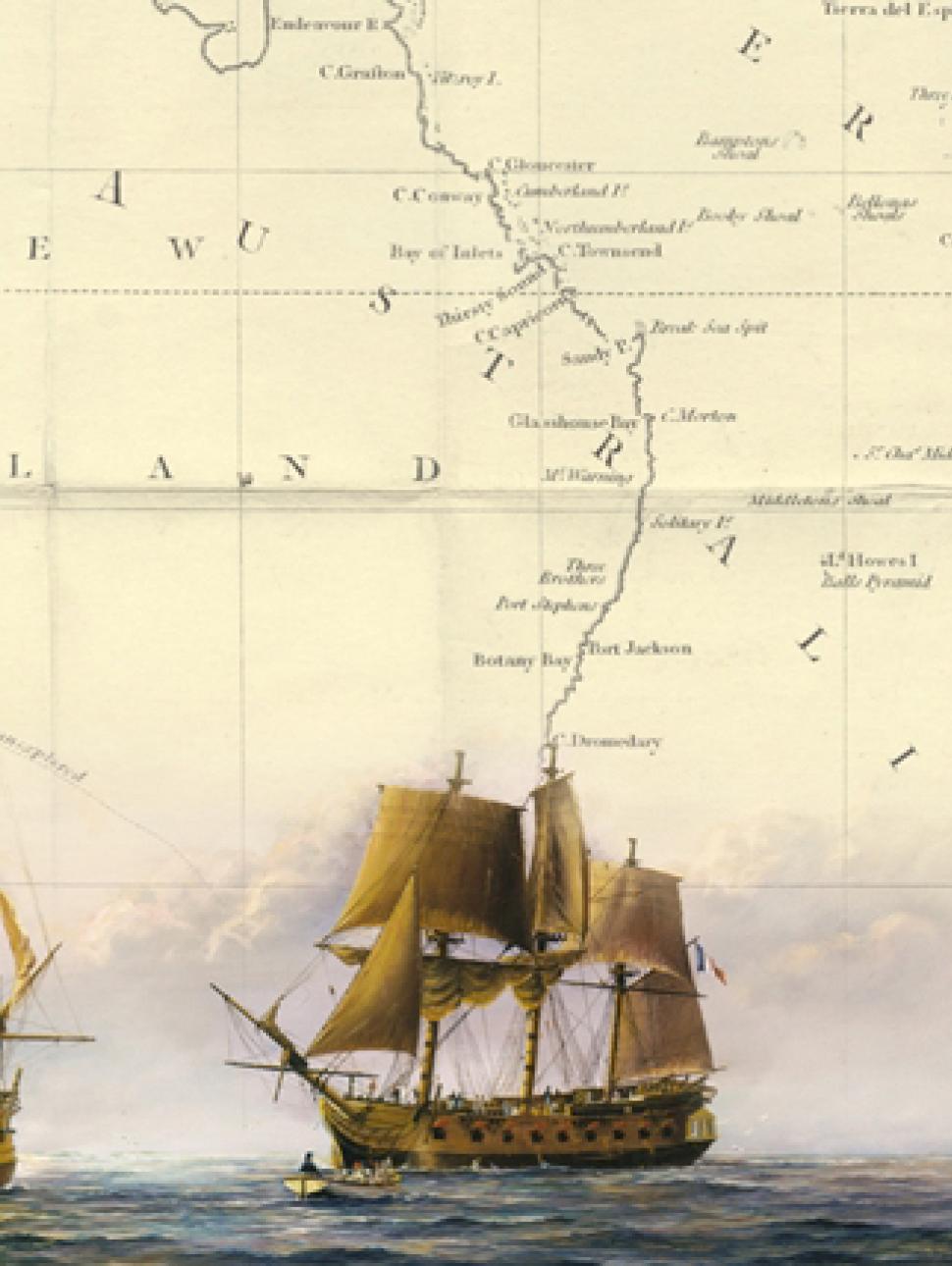
Sunday Seminars: Voyages of Discovery
Dates
Sunday 10 November | 2pm - 3pm
Sunday 24 November | 2pm - 3pm
Sunday 8 December | 2pm - 3pm
Included with General Admission | Bookings required
Ages
Suitable for ages 10+
Duration
1 hour
Site access information
WA Maritime Museum is mostly accessible, excluding tours aboard the HMAS Ovens. Call 1300 134 081 for assistance. More about accessibility and amenities >
Setting off from Le Havre in 1800 (and against British rivals), Nicolas Baudin led the French expedition to discover more of the southern land mass – specifically to chart the unknown southern coast of New Holland.
Crews aboard the Géographe and Naturaliste, informed by Enlightenment ideas about science and observation of the natural world, undertook the journey. They experienced many meaningful encounters, which resulted in them amassing a huge collection of specimens to return to France.
French maritime exploration in the 19th century was significant and has left a lasting legacy which continues to fascinate the globe.
"You will make up this collection of living animals of all kinds, insects, and especially of birds with beautiful plumage. As regards animals, I don’t need to tell you how to choose between those intended for the menageries and those for a collection of pure pleasure. You will appreciate that it must comprise flowers, shrubs, seeds, shells, precious stones, timber for fine works of marquetry, insects, butterflies, etc."
- Napoleon Bonaparte
Seminar sessions
Presented by Associate Prof Shino Konishi, School of Indigenous Studies and the School of Humanities, The University of Western Australia.
Several French maritime expeditions visited Western Australian shores in the late eighteenth and early nineteenth century, surveying our coastlines and documenting our natural history. These French expeditions observed and interacted with Aboriginal people and their cultures, particularly around Shark Bay and King Georges Sound.
Join Shino Konishi as she discusses some of the cross-cultural encounters and the important ongoing legacy of these early descriptions and illustrations of Aboriginal people and cultural practices.
Presented by Dr Paul Gibbard, French Studies, School of Humanities, The University of Western Australia.
This talk will trace the life of Joséphine from her early years in Martinique, her first marriage and imprisonment during the Terror, through to her marriage to Napoléon Bonaparte, coronation as Empress and divorce.
She had a great passion for collecting – art, furniture, animals and plants, and was keen to ensure that the naturalists of the Baudin expedition had her at the forefront of their minds when collecting flora and fauna in Australia.
Presented by Patrick Llewellyn, Visiting lecturer and Chairman, Institute de recherche Nicolas Baudin.
Why dozens of French names dot Australia's coastline
French explorers during the d'Entrecasteaux (1791-1794) and Baudin (1800-1804) expeditions mapped southern and western Australia. After France's defeat in the Napoleonic Wars, many French place names were replaced by English ones designated by the Flinders Expedition (1801-1803).
In 1911, Alphonse de Fleurieu, a descendant of Pierre Claret de Fleurieu who organized the Lapérouse, d'Entrecasteaux, and Baudin expeditions, traveled to Australia with a corrected map, showing original French place names. His request to restore these names was granted.
This map, representing 140 years of maritime exploration and Franco-Australian connections, was deposited at the National Library of France in 1913 and largely forgotten. Recently rediscovered by the Institut de recherche Nicolas Baudin, the map and documents will be translated into English and donated to Australian universities and museums.
Related exhibitions
Immerse yourself in the enchanting world of Empress Joséphine's garden — a world filled with colour, wonder, discovery, and surprise.
